Over the past five years, AI has evolved from a concept with significant potential to an everyday tool that many people use, sometimes without even realizing it. Recruitment is no exception. While hiring specialists are certainly aware of using AI—and some even acknowledge it publicly—there is a fine line between enhancing efficiency with AI and over-relying on it, potentially losing the personal connection with candidates.
In this article, we’ll explore the common tools and methods that recruiters use, the advantages and disadvantages of these tools, and their impact on you as a job seeker. We’ll also discuss how you can effectively leverage this knowledge to your advantage.
Ways Recruiters Use AI
Artificial intelligence is advancing rapidly, with hundreds of new tools emerging each year. Recruitment professionals are keeping pace with these changes and seeking the best ways to harness AI’s advantages in their work. Here are some examples of how recruiters and HR professionals can use AI effectively.
Job Openings and Templates Creation
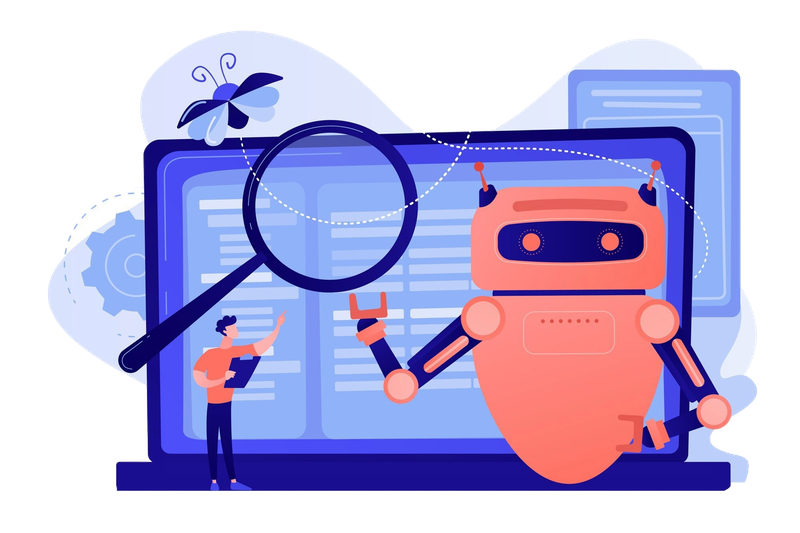
Writing job postings and descriptions is one of a recruiter’s essential duties, yet it can be quite time-consuming and, at times, tedious. AI tools can help streamline and accelerate this task, freeing up time for other high-priority responsibilities.
AI can assist in writing job descriptions based on keywords and specific job positions. It can also help generate templates that maintain the company’s tone and can be customized with just a few clicks.
The key advantage of using this type of AI is that, over time, it reduces the amount of time you spend creating job postings.
Candidate Filtering by Comparing Resumes and Vacancies
After creating and posting a job opening, the next step is sorting through applications and resumes. This task is crucial but can also be exhausting, as it involves reviewing each resume carefully to match applicants with the requirements of the position. Artificial intelligence streamlines this process by quickly screening documents, comparing information, and identifying relevant keywords in seconds.
This is essentially how most applicant tracking systems work today. HR professionals fill out a form for a specific position, and applicants complete a similar form on their end while also uploading their resume. The closer your application matches the description provided by HR, the higher your chances of receiving a thorough review.
On one hand, this approach speeds up the hiring process and reduces the likelihood of human error (unless mistakes were made in the form-filling stage). On the other hand, the software primarily compares raw data and is still developing its ability to understand the deeper meaning of the text rather than simply scanning for keywords.
AI Tests and Assignments
For many roles, demonstrating both theoretical knowledge and practical skills is essential, especially in fields like STEM. As a result, creating tests and assignments for candidates often falls to the hiring team. If a company is hiring for five positions in tech, HR professionals must create five different tests, and then either they or technical specialists are tasked with reviewing tens or even hundreds of responses.
Not only can AI write assignments for you, but it can also automatically grade responses, saving hours for you and your team. More advanced software can analyze results beyond just assigning scores. For example, some AI systems can provide behavioral analysis and evaluate a person’s approach to problem-solving and communication style. This helps the team better understand both the candidate’s abilities and their fit for the company.
Interview Scheduling
One of the most commonly used types of AI by hiring professionals today is interview scheduling. Since conducting interviews makes up about half of a recruiter’s typical workday, scheduling them efficiently is essential. While it may not take up much time, relying on AI for this task can reduce the risk of human errors, such as missing a call or scheduling two interviews at the same time.
AI manages your calendar, schedules interviews at times that work for both the candidate and the interviewer, sends reminders when necessary, and ensures that nothing is missed or overlooked.
AI Chats
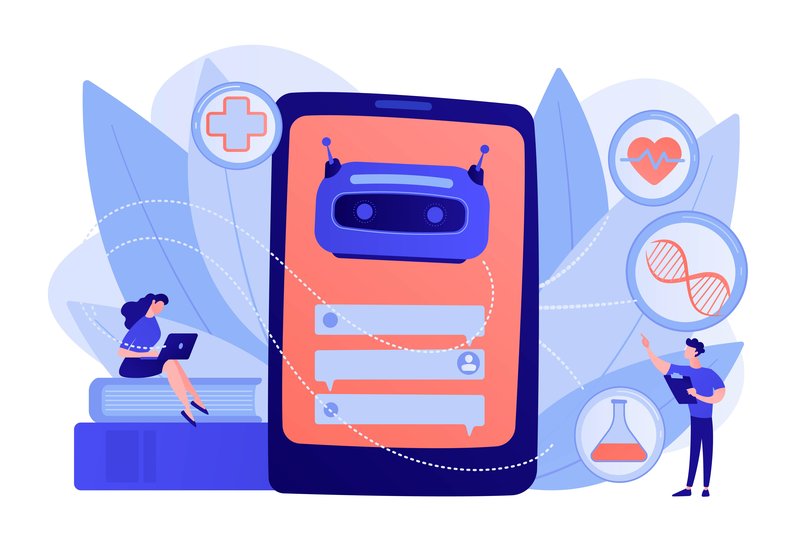
This feature is somewhat controversial. Depending on the quality of the AI and the extent to which it is relied upon, it can either save time and improve efficiency or potentially discourage relevant candidates.
Typically, recruiters use AI-driven chats to initiate conversations, respond to applications, and send follow-up messages after interviews. More advanced AI software can generate personalized texts and responses by analyzing candidate data, while less advanced AI can only create message templates that HR managers must complete themselves.
However, due to public mistrust and occasional disapproval, some candidates view the use of AI for communication as off-putting and may choose to exit the recruitment process, opting for companies where recruiters engage directly.
Interview Preparation: Listing Questions
Interviews typically require preparation as well. This includes reviewing resumes and candidate data, planning questions and discussion topics, and sometimes preparing verbal assignments. All of this takes extra time for the hiring team. If the role being filled requires specific knowledge, the team may also need to consult other departments to either attend the interview or assist with preparing questions and answers.
AI can significantly reduce the time required for this stage by generating relevant questions along with detailed answers and explanations. This allows recruiters to simply review the list and be ready to proceed.
Mentoring and Onboarding Personalized to Each Employee
Onboarding is a critical stage for any new employee joining a company. The HR team plays a key role in ensuring this process is smooth and welcoming, leaving a positive impression and helping retain new hires. AI-driven analysis can enhance onboarding plans, making them more personalized and efficient.
By analyzing an employee’s data from the recruitment process, past work experience, and skills, AI can offer personalized recommendations, focusing on the individual’s strengths and areas for improvement. This ensures that time and resources are allocated effectively.
Employee Retention Analysis
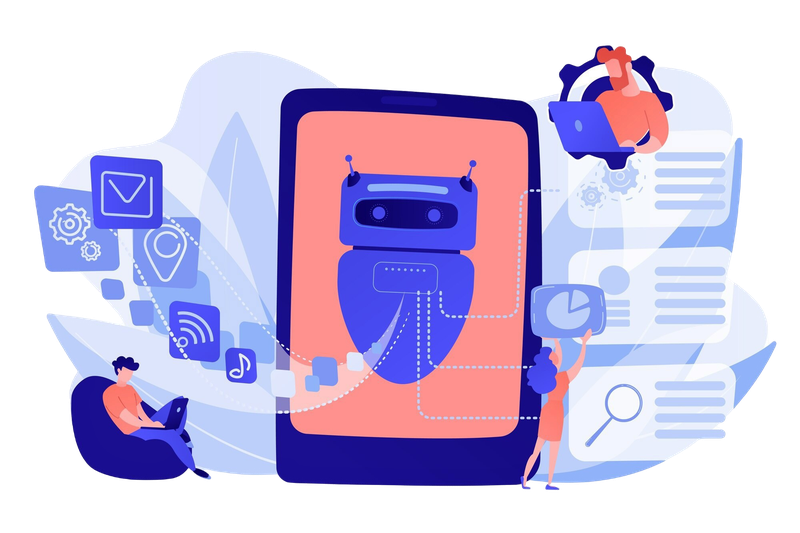
One of the HR department's key responsibilities is employee retention. The retention rate reflects employee satisfaction across various aspects of their work, including compensation, career growth opportunities, and interpersonal relationships.
Some hiring professionals are beginning to implement AI to enhance employee retention. This software analyzes various factors such as employee behavior, quarterly performance, manager assessments, and other elements that contribute to employee success and future opportunities. Based on the results, it generates a list of employees with low satisfaction and can also provide recommendations on areas that can be improved to retain high-potential employees.
How does it affect you?
These changes in recruitment are also reshaping how candidates and applicants are perceived, as well as how HR professionals engage with them. There are several positive and negative factors that can impact your job search process. Let’s take a closer look at them.
Why is AI in recruitment a good thing?
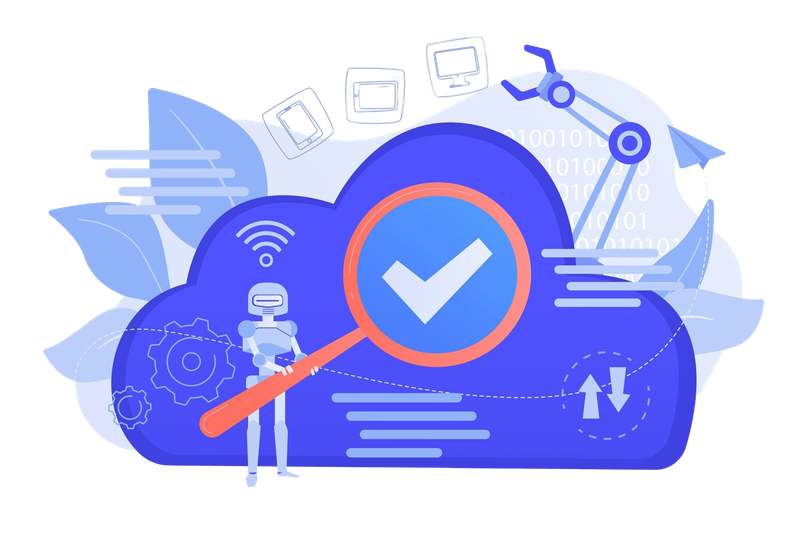
1. Artificial intelligence helps streamline the entire recruitment process. Many tasks within hiring departments can be automated, leading to faster and more accurate results. What might take a person a whole day to accomplish, an appropriate AI tool can complete in just a few minutes.
Many job seekers often highlight that the hiring process is too prolonged. However, by delegating repetitive tasks and some decision-making to AI, the entire process— from submitting an application to receiving an offer— can be completed much more quickly.
2. We’re all human, and it’s natural for us to make unintentional mistakes. However, sometimes these errors can result in overlooking the best potential candidates or wasting valuable time repeating the same tasks.
AI is simply a machine that operates based on how it was programmed, so the likelihood of making incorrect analyses or decisions is minimal, provided there were no errors in the initial setup.
3. One of the common challenges many applicants face daily is discrimination. Although many companies claim to prohibit discriminatory decision-making, it remains prevalent and widespread. Many individuals don’t even realize they are discriminating against certain groups until direct evidence is presented. AI, however, is a system— and a system cannot discriminate based on will or intention. Additionally, it lacks the subconscious influences that shape human perceptions.
4. AI can also assist in better matching across several situations:
- Comparing resumes with a specific job description or opening to select the best matches.
- Evaluating applicants’ skills against each other to identify the most qualified candidate.
- Matching candidates with job openings to find the most suitable position.
The latter is the most beneficial option for both sides. For example, if an applicant submits their resume for a sales position, AI might analyze the data and identify that the candidate's skills are a better fit for a different role within the company. In such cases, AI can suggest that the candidate consider this alternative position as well.
5. Using AI to communicate with candidates or assist in scheduling events, such as interviews, can enhance the candidate experience and create a positive impression of the company. Timely notifications, follow-up messages, and a structured process all contribute significantly to building trusting relationships.
Why is AI in recruitment a bad thing?
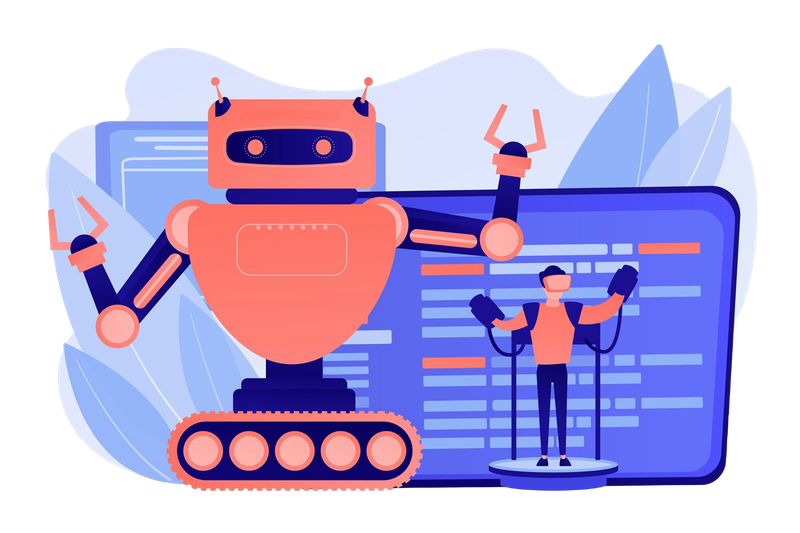
Communication between software and humans can never fully replace human-to-human interactions. Emotions and personality play a crucial role in building genuine connections. Over-relying on AI for communication, especially when providing detailed feedback or sharing impressions, may inadvertently push people away. There is a fine line between ‘using AI to assist with your job’ and ‘letting AI take over your job.’
- A good applicant is not always one whose resume perfectly matches the job description. However, AI programs are not yet capable of recognizing this nuance. They typically rely on set rules, mostly based on keyword comparison. A true professional may not have a keyword-optimized resume, or may struggle to convey all their skills and experience within the constraints of a two-page document.
- For many experienced and skilled HR professionals, the shift to technology means additional training and learning, which may not be appealing to everyone. On one hand, this requires extra time and expenses for education. On the other hand, with technology becoming an integral part of all industries, it is something that everyone must adapt to, making it inevitable rather than something to avoid.
- As we’ve already mentioned, AI makes decisions based on pre-set parameters. If the data AI is trained on or operates with is incorrect, biased, or discriminatory, the program will make corresponding decisions. This is one of the primary reasons many people are wary of, or oppose, implementing AI in the recruitment process.
What can you do to benefit from the situation?
These changes in recruitment call for a shift in how you approach resume building and job applications. In many cases, working smarter rather than harder is exactly the strategy to aim for. Here are a few strategies you can apply in your job search process to increase your chances of landing a job faster and more efficiently.
Become a Match
Given the specifics of today’s candidate selection and AI usage, it’s now clearer than ever what you need to include in your resume to stand out. In fact, the most experienced and skilled candidate isn’t always the one who lands the offer.
When you upload your file to an ATS or similar AI system, it screens and compares the data against the job description. Your goal, therefore, should be to match as many keywords from the job description as possible.
This doesn’t mean you should exaggerate or list skills and experiences you don’t genuinely have. However, rephrasing your personal and professional experiences to align with required terminology, and emphasizing relevant skills where appropriate, can make a significant difference.
Take a Step Further
Many candidates have already embraced AI as a tool to enhance their job search efforts. There are ways to not only stay competitive but also go above and beyond to stand out from the crowd.
A video resume can be a powerful tool to help you stand out. It allows you to showcase your professionalism, values, and ideas in a way that’s more engaging than a traditional PDF resume. Through video, you can create a stronger, more personal impression and connection with potential employers, bringing your application to life beyond written words.
AI Domination
With talent acquisition professionals using artificial intelligence, you have the same green light to leverage it yourself. Using AI strategically can assist you in multiple ways:
- Build your resume using professional smart builders that can summarize your experience for a professional summary and suggest relevant skills for your position.
- Check your resume for keywords, errors, typos, and other issues, and compare it to a job opening using resume checkers and tailoring features.
- Prepare for interviews and complete assignments with the help of AI tips.
- Record video resumes or prepare for video interviews with AI guidance, tips, and editing.
All these features are designed to help you succeed in your career aspirations by providing professional assistance and guidance, enhanced with a touch of modern technology.
AI is not as intimidating as many people think. It is the future for numerous major industries and growing businesses. Understanding how to work with AI and gaining experience in this field can help you create better opportunities for landing a great job and becoming a more versatile and successful professional, no matter your area of expertise. Recruitment is rapidly evolving alongside technological advancements, and so is the job search process. Don’t be afraid of it—embrace it and make it work for you.
